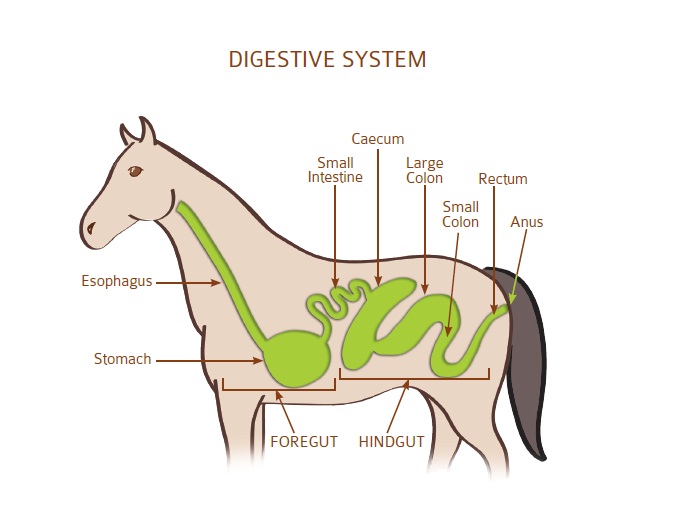
Probiotics as an Acidosis-Prevention Tool in Horses
High-Starch diets, aimed to complete the horse energetic requirements, are known to alter hindgut microbial communities when nondegraded starch spills from small intestines to the hindgut. Causing decreased pH, increased propionate concentration, increased potential of microbial endotoxin release, and decreased fiber digestion resulting in an increased risk of acidosis, which in turn may cause gastric ulcers, colic, or laminitis.
This study aimed to evaluate whether direct-fed microbials (DFM), specifically LAB (Lactic-acid Producing Bacteria) could increase digestibility and minimize acidosis risk in horses fed high-starch concentrates. 15 geldings were randomly assigned to 3 different DFM treatments through 26 days of low-Starch (day 1-13) and an Abrupt-Change to a High-Starch diet (day 14-26) for 26 days. Including; control group (no DFM), LAC1 group (Lacto bacillus acidophilus), and LAC4 group (a mixture of L. acidophilus, Lactobacillus casei, Bifido bacterium bifidum, and Enterococcus faecium). While feces samples were collected from day 11-13 (low-starch), from day 15-17 (Abrupt change), and from day 24-26 (high starch).
The control group showed an expected decrease in fecal pH, as well as increased digestibility of many parameters during the Abrupt-Change and High-Starch periods; dry matter, OM, NDF, ADF, P, Cu, Mn, Na. Whereas both DFM groups fecal pH were not affected by the Abrupt-Change to High-Starch diet, as the DFM seem to have assisted in maintaining balance.
Expert opinion by Shirley Ferber
Study results may support the hypothesis but did not demonstrate a clear effect of direct-fed LAB on acidosis risk. Requiring further studies, especially regarding specific relevant species identification. However, it is clear that microbial-based solutions would be best at tackling this problem and have the potential to prevent ulcers and improve digestability and overall equine health.
> From: Swyers et al., J. Anim. Sci 86 (2008) 2596-2608. All rights reserved to ©2008 American Society of Animal Science.. Click here for the online summary.


